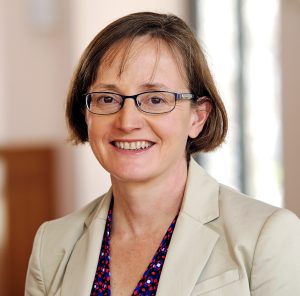
April 29, 2021
Bioinformatics Research and Collaboration in the Era of Big Data and Precision Medicine
As we have entered the precision medicine and big data science era, there are many unmet challenges on identifying the disease related information from large, heterogeneous data, and translating the findings for clinical use. Among these challenges, one is how to effectively identify driver mutations and genes in cancer genomes, especially those with the potential for druggable targets for the development of molecularly targeted cancer therapies. In this talk, I will first review the computational methods and tools for detecting cancer driver genes and mutations from cancer big data. Then, I will present our informatics approaches for identifying cancer mutations…

March 17, 2021
Virtual Campus Visit with NSF CISE AD Dr. Margaret Martonosi
The National Science Foundation (NSF) supports a majority of US academic research in the Computer and Information Science and Engineering (CISE) topic areas. Since February, 2020, Dr. Margaret Martonosi serves as NSF CISE AD, stewarding the CISE directorate’s $1B annual budget on behalf of research, education, workforce and infrastructure funding in CISE topic areas and for science as a whole. Martonosi is conducting a series of “virtual campus visits” to engage in conversation about a vision for CISE research going forward, and to field Q&A from the CISE community. Please join us for this highly-interactive session and please bring your input and questions! BioMargaret Martonosi is the US…

Feb. 17, 2021
Purdue’s New Plant Sensor Technologies for Improved Phenotyping Quality
Plant phenotyping technologies have been developing rapidly over the last 2 decades. Plant sensors are becoming more precise, faster, easier to use and with lower cost. However, there are still several bottleneck issues in plant sensing, including the changing environmental conditions, the great variances on the plant, and the complicated GxTxEinteractions. These issues keep phenotyping difficult and limit further application of the sensor technologies. The Purdue plant sensor developers have been working innovatively to address these issues and develop the next generation plant sensing technologies. In this seminar, Dr. Jin will firstly introduce the 4 newly constructed phenotyping facilities at Purdue,…

Jan. 25, 2021
Building a Population-based Childhood Cancer Data Ecosystem: Challenges and Opportunities for Informatics and Data Science
Childhood cancer is a relatively rare disease diagnosed in over 16,000 U.S. children and adolescents (ages 0 – 19) each year. While 84% of children with cancer survive 5 years or more, cancer remains the second leading cause of death in children after accidents. Molecular variations make all childhood cancers extraordinarily rare and difficult to study. The Childhood Cancer Data Initiative (CCDI) of the National Cancer Institute recognizes the critical need to collect and analyze and share data to address this understudied cancer burden. Innovations in informatics methods and data science are clearly needed to assimilate new data sources, characterize the burden…